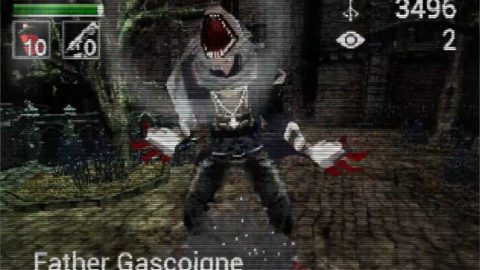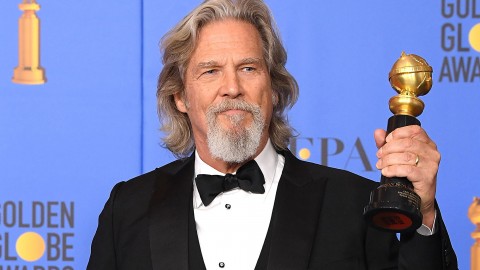
Chilling in his shady room as the sun beats through the window of his Lagos, Nigeria pad, a stylish, Corteiz beanie-wearing figure emerges promptly on screen for his Zoom interview. He’s ready to chat with NME, especially after showing his parents our four-star review of his latest album and proudly telling them: “’You see! I’m doing something!’”
The figure is 29-year-old Cruel Santino, formerly known as Santi, and the record is ‘Subaru Boys: FINAL HEAVEN’, a drastic 180 from the softer, charming takes on afrobeats he’d cultivated on its 2019 predecessor ‘Mandy & The Jungle’. He instead revels in a harder-edged, psychedelic sound on his alté-inspired third studio album, a mood epitomised by the trippy ‘official visualizer’ for its ethereal breather track ‘Beautiful Nothing’, which features Warwick, New York’s bedroom popper Gus Dapperton.
When he released ‘Mandy & The Jungle’ and his 2016 debut ‘Suzie’s Funeral’, Cruel Santino went by the name Santi – he was born Osayaba Andrew Ize-Iyamu – but changed it because a Spanish artist already had the moniker. Those smooth records channeled the dancehall, afrobeats and hip-hop he consumed throughout his childhood.
This time around, he felt able to switch it up after shredding his fear of being ridiculed for how eccentric his alternative ways could be – in Nigeria, alté is simply an ‘alternative’ to the dominant funky afrobeat sound, which itself spawned contemporary afrobeats. Alté, then, is a genre-busting, anything goes style that defies categorisation. For Cruel Santino, on ‘Subaru boys: Final Heaven’, it means sci-fi-inspired sounds that throb with Eurodance beats and the spiky production of hyper-pop.
“I wanted to show people how much more music I have in me,” Santino tells NME. “‘Mandy And The Jungle’ is very dear to people. But, in many ways, I was still conforming because I was in a space where you can’t risk it too much. People got accustomed to me from ‘Mandy…’ but they didn’t know that I could rap.” In a genre with no constraints, alté allows stars like Santino ample opportunity to reinvent themselves. Just look at his friends and frequent collaborators, the baby-voiced Amaarae (currently riding high from her 2020’s ‘SAD GURLZ LUV MONEY’) and the cocksure wildcard Odunsi, The Engine.
During lockdown, Santino was enthralled in his own world of gaming (particularly the snowboarding game Steep), anime and music, which became “one big matrix” for him. This personal bubble was the birth place of ‘Subaru Boys…’, a record that perfectly blends afrobeats basslines with hyperactive synths. “In quarantine, something happened where, if you watch a lot of films, play a lot of games, being inside that much fuses you into all the things that you love,” Cruel Santino says. “That gave me the idea for this next project. I was trying to conceptualise [its] world because that’s how I do my projects. I kind of have to make the world in my head, so I can transfer [my thoughts] to sound.”
‘Subaru Boys…’’s adventurous storyline invites you to travel through a ‘space war’ with Santino as the commander-in-charge. Why would the once-romantic music maker want to make music surrounding war? “I feel like everything starts with war,” he replies, explaining the theme needn’t be taken literally: “People that do art and stuff like that are in a battle within themselves to express themselves. And generally, I feel sometimes that, when it doesn’t have to be deadly, war can be beautiful.”
The album’s penultimate song, the melancholic ‘Dirty Eyes, Evil Manners’, features British grime MC turned international rap star Skepta. As a big fan of the Tottenham artist, who helped to inspire his sense of artistic individuality, the track was truly a full-circle moment for Santino. It was even more mind-blowing that Skepta sings as well as raps on the song.
“It was insane because, when I sent ‘Dirty Eyes, Evil Manners’ off to Skepta – that song, to me, is grime; he’s grime,” says Santino. “What’s crazy about it is I [sing in] a British accent on that song, so I was like, ‘I need him on this’. But I was scared that he would have been like, ‘What the fuck is this?’. Skepta tapped into the vibe, though, because I haven’t heard him rap-sing for a while. So the fact that he did that – this is the best gift he could give me. I grew up listening to Skepta, and I really look up to Skepta and the sense of how he was always by himself and he bridged a gap that people couldn’t bridge. It took him time, but he did it.”
Crowing up in Ikeja, the capital state of Lagos State, Santino says he “didn’t have any friends”. Instead he plugged in to music: his auntie played him alternative American superstar Santigold (who inspired his original moniker) and he discovered an early love of Sean Paul. “[Because] I didn’t really grow up with friends,” he explains, “I used to be into hearing stuff, and with what I heard, I found escapism. It feels like me consuming that much variety at such a young age has given me this thing in me that just allows me to fuse stuff and be without boundaries”.
No wonder Santino grew up to be hailed as the face of alté, whose success is summed up by the Spotify playlist ‘Alté Cruise’, which has racked up just under 60,000 followers. And that number will surely rise as afro-R&B stars dip into the scene to expand alté’s reach even further. Look at Tems, whose beloved feature on Wizkid’s ‘Essence’ drew millions of streamers on her own debut project, the 2021 EP ‘If Orange Was A Place’. Can Santino offer a single definition of the slippery subgenre that the world is steadily falling in love with?
“I feel like, in the next couple of years, the biggest rock song can come out of Nigeria”
“There’s no definition for [alté] yet because it’s still growing,” Santino insists. “People are still finding themselves – all the guys that were making [afrobeat] funk in the ‘70s and stuff, I’m pretty sure they were alternative too. But we’re the first bunch to be pushed into the limelight for alté, who are formulating the culture around it. People might not really get what you’re doing because that’s the whole point of being alternative, I guess. It was a risk going on to make the songs I’ve made but I felt very confident in myself.”
“The reason it’s so important to me and others in the genre to showcase ourselves is that Nigerian music is more than just one type of music. I feel like there are so many kids in Nigeria and the whole continent that want to make their own sound. You can’t let your environment tell you that you can’t make music or you can’t dream that far. There are just no boundaries, no definitions – all expression”.
For years to come, Santino wants to continue his quest of liberating more who that come after him, with the goal being not only his own global domination, and not only that of Nigerians, but for the whole continent of Africa to be running things in the music world.
“I have two goals,” he says firmly. “The first goal is to create a space in which people who come after are free enough to experiment and push their sound more. I feel like, in the next couple of years, the biggest rock song can come out of Nigeria. The biggest rap song in the world can come out of Nigeria because we have that talent, too. I want people to create without fear because when they create without it, they’re going to add something that will change the world. We need more people to keep bridging gaps and creating new sounds.”
– Cruel Santino’s ‘Subaru Boys: FINAL HEAVEN’ is out now via Monster Boy / Interscope
The post Cruel Santino, alté’s new king: “There are no boundaries, no definitions – all expression” appeared first on NME.







